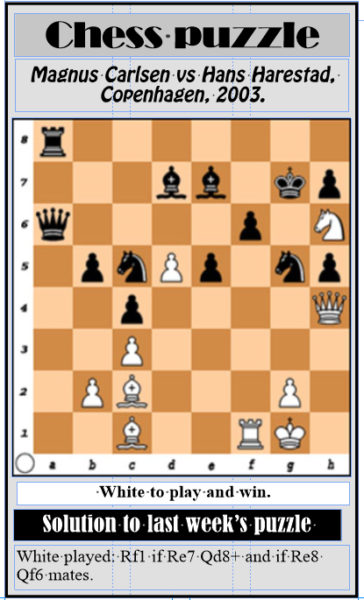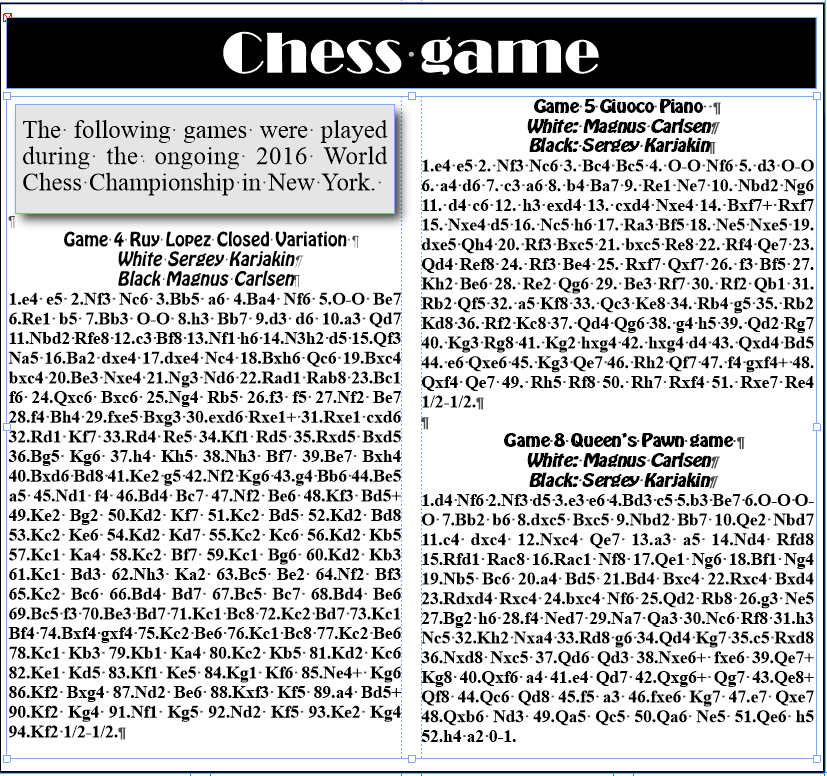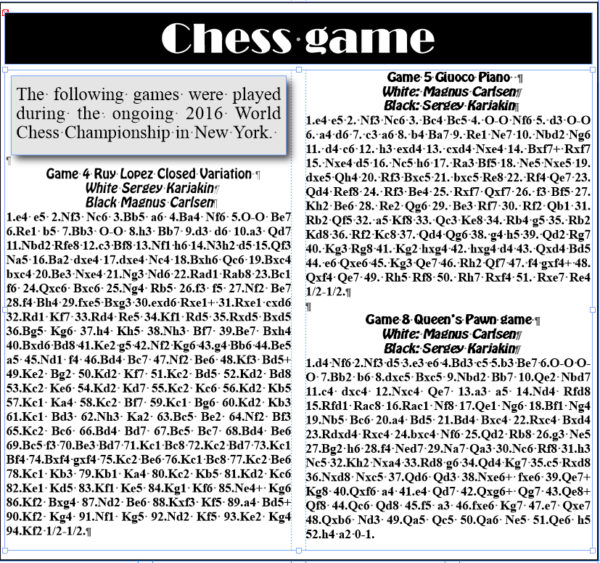
– Ecclesiastes 9:11, Holy Bible, King James Version
The ancients were accurate about the role of chance in human affairs. There are existing writings referring to luck and chance. The biblical verse is reminding us success is unpredictable, uncertain, because man does not ultimately control events.
Misfortune may occur at any moment. In the World Chess Championship, challenger Sergey Karjakin conquered the favoured world champion Magnus Carlsen in Game 8, thereby ending an accumulation of seven successive draws.
The win represented a unique accolade in classical chess. For Karjakin, it must have been a delicious victory. It placed the champ in a position where he must win twice, in three games, to prevent the match from exploding uncertainly into the erratic blitz format, the no-man’s land of chess. In blitz chess, success is uncertain. Time and skillfulness are of the essence. If you blunder during extended hours of thinking time, as Carlsen did with 51. Qe6 in Game 8, how much better can it be when you have a total of five minutes thinking time at your disposal? Such is the nature of a blitz game. If it becomes necessary, an Armageddon game would be played to determine a winner of the match, where the massive five minutes blitz would be further reduced to two minutes. The pressure was on Carlsen to seek a win to even things again.

Obviously, the champ’s dedicated fans would have been disappointed by his failure to attend the press conference.
Carlsen disclosed he felt fine going in to the significant tenth game. Grandmaster Ian Nepomniachtchi, whilst commentating on the eighth game with grandmaster Judit Polgar, pointed out, “Normally, after a lost game, Carlsen comes back twice as strong.”
Nepomniachtchi was right. The champ did not win in the ninth but he did it the game after.
Carlsen was back in business following a crucial victory in the tenth.
Former world chess champion Vishy Anand added his thoughts to the new development in the match following Karjakin’s win during an interview with chess writer Albert Silver. Anand, who is familiar with winning and losing at the world championship level was quoted as saying, “There are still four games left and these are not ordinary games. These will be quite tense and they [the players] would have a lot on their plates.”
]
As at Friday when this column was written, there were two remaining games; the score was even. The eleventh game was contested yesterday, and the final in the 12-game series, would be played tomorrow. If games 11 and 12 end in draws, the championship match will move into the tension-filled rapid and blitz encounters.







